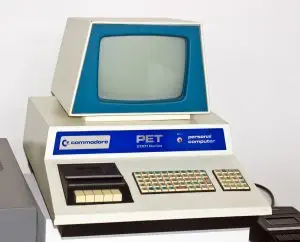
Tech was once always in your way. Soon, it will be almost invisible. A key question – What’s going to be always in our way next?
All of the major tech players, companies from other industries and startups whose names we don’t know yet are working away on some or all of the new major building blocks of the future. They are: Artificial intelligence / machine learning, augmented reality, virtual reality, robotics and drones, smart homes, self-driving cars, and digital health / wearables.
All of these things have dependencies in common. They include greater and more distributed computing power, new sensors, better networks, smarter voice and visual recognition, and software that’s simultaneously more intelligent and more secure.
I expect that one end result of all this work will be that the technology, the computer inside all these things, will fade into the background. In some cases, it may entirely disappear, waiting to be activated by a voice command, a person entering the room, a change in blood chemistry, a shift in temperature, a motion. Maybe even just a thought.
Your whole home, office and car will be packed with these waiting computers and sensors. But they won’t be in your way, or perhaps even distinguishable as tech devices.
This is ambient computing, the transformation of the environment all around us with intelligence and capabilities that don’t seem to be there at all.
I expect to see much of this new ambient computing world appear within 10 years, and all of it appear within 20.
…if we are really going to turn over our homes, our cars, our health and more to private tech companies, on a scale never imagined, we need much, much stronger standards for security and privacy than now exist. Especially in the U.S., it’s time to stop dancing around the privacy and security issues and pass real, binding laws.
And, if ambient technology is to become as integrated into our lives as previous technological revolutions like wood joists, steel beams and engine blocks, we need to subject it to the digital equivalent of enforceable building codes and auto safety standards. Nothing less will do. And health? The current medical device standards will have to be even tougher, while still allowing for innovation.
The tech industry, which has long styled itself as a disruptor, will need to work hand in hand with government to craft these policies. And that might be a bigger challenge than developing the technology in the first place.
We’ve all had a hell of a ride for the last few decades, no matter when you got on the roller coaster. It’s been exciting, enriching, transformative. But it’s also been about objects and processes. Soon, after a brief slowdown, the roller coaster will be accelerating faster than ever, only this time it’ll be about actual experiences, with much less emphasis on the way those experiences get made.
Leave a Reply